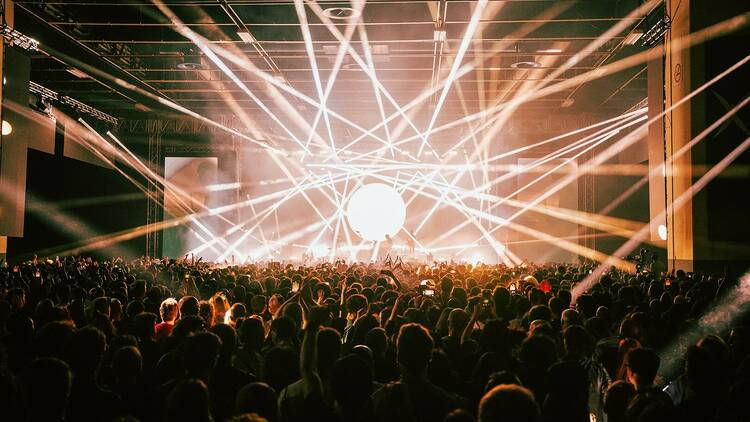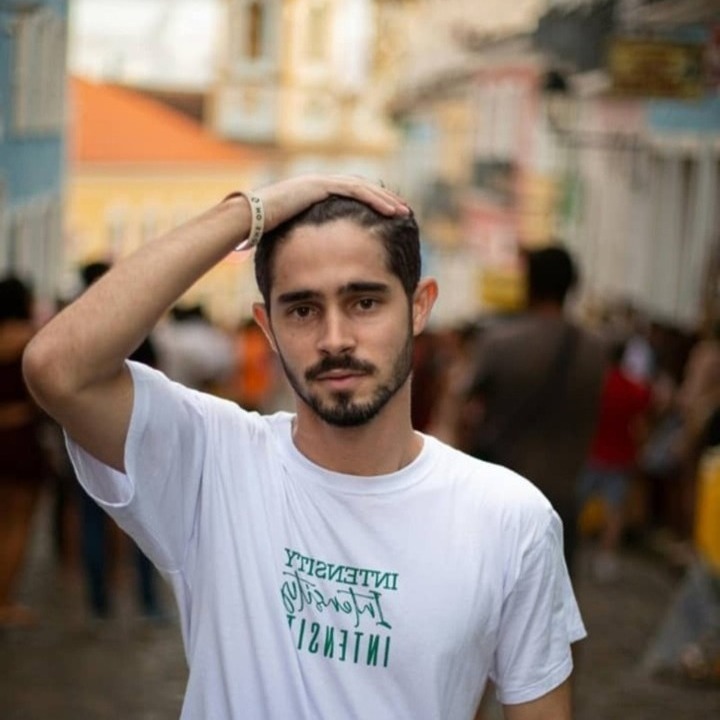A Summer Of Celebrations - Exploring Europe’s Festivals In July
These events not only highlight the unique traditions and heritage of each region but also bring together people from all walks of life in a joyous celebration of life and culture.
Author:Sophia HarperReviewer:Finn WildeJul 23, 20242.4K Shares98.3K Views

July is a month of vibrant celebrations across Europe, where the continent comes alive with a plethora of festivals that showcase its rich cultural tapestry. From music and dance to historical reenactments and gastronomic feasts, European festivalsin July offer something for every traveler.
These events not only highlight the unique traditions and heritage of each region but also bring together people from all walks of life in a joyous celebration of life and culture. Whether you're a music enthusiast, a foodie, or simply looking to immerse yourself in local customs, Europe's July festivals promise an unforgettable experience.
Roskilde Festival (Denmark)
Northern Europe kicks off the festival season with the renowned Roskilde Festival in Denmark. Established in 1971, Roskilde has grown into one of Europe's largest music festivals, attracting over 130,000 visitors each year. This week-long event features a diverse lineup of international artists across various genres, from rock and pop to electronic and hip-hop.
The festival is also known for its commitment to social causes, with profits supporting humanitarian and cultural work. Alongside the music, attendees can explore art installations, engage in workshops, and enjoy the vibrant community spirit that defines Roskilde.
Flow Festival (Finland)
Finland's Flow Festival in Helsinki is another highlight of Northern Europe's July festivities. This urban boutique music and arts festival is celebrated for its eclectic mix of genres and innovative programming. Held in a former power plant, Flow offers an atmospheric blend of music, visual arts, and gourmet food.
Visitors can expect performances from world-renowned artists as well as emerging talents, all set against the backdrop of Helsinki's industrial landscape. The festival's commitment to sustainability and creative design makes it a standout event in the European festival calendar.
Tomorrowland (Belgium)
In Western Europe, Belgium's Tomorrowland stands out as a global phenomenon. Known as the world's largest electronic dance music festival, Tomorrowland transforms the town of Boom into a fantastical realm of music and magic. With its elaborate stage designs, immersive experiences, and lineup of top DJs from around the world, Tomorrowland attracts a diverse audience eager to lose themselves in the festival's dreamlike atmosphere. The attention to detail and the sense of community among attendees make Tomorrowland a must-visit for electronic music fans.
Bastille Day (France)
France's Bastille Day on July 14th is a national celebration that commemorates the French Revolution and the storming of the Bastille prison in 1789. The day is marked by grand parades, fireworks, and parties across the country. In Paris, the festivities reach their peak with a military parade on the Champs-Élysées, a spectacular fireworks display by the Eiffel Tower, and numerous public events. Bastille Day is an opportunity to witness French patriotism and enjoy the country's rich cultural heritage in a festive and convivial atmosphere.
San Fermin (Spain)
Southern Europe offers a different flavor of celebration with Spain's San Fermin festival in Pamplona. Famous for the Running of the Bulls, San Fermin is a week-long event that attracts thrill-seekers and cultural enthusiasts from around the world. The festival begins with the Chupinazo, a ceremonial rocket launch, and continues with daily bull runs, traditional music, dance, and religious processions. While the bull runs are the festival's main attraction, visitors can also enjoy the vibrant street parties and the warm hospitality of the locals. It's a festival that blends adrenaline and tradition in a unique and unforgettable way.
Umbria Jazz Festival (Italy)
Italy's Umbria Jazz Festival is a treat for music lovers. Held in the picturesque town of Perugia, this festival has been a staple of the European jazz scene since 1973. The event features performances by some of the biggest names in jazz, as well as up-and-coming artists. Concerts take place in historic venues and outdoor stages, creating an intimate and captivating atmosphere. Beyond the music, the festival offers workshops, exhibitions, and a chance to explore the rich cultural heritage of Umbria. It's a celebration of music and culture that draws jazz aficionados from around the world.
EXIT Festival (Serbia)
Eastern Europe also hosts some remarkable festivals in July. Serbia's EXIT Festival, held at the Petrovaradin Fortress in Novi Sad, is one of the region's most significant music events. Born out of a student movement for peace and democracy in 2000, EXIT has grown into an award-winning festival known for its diverse lineup and unique setting. The festival spans multiple genres, including rock, electronic, hip-hop, and reggae, and features performances on over 40 stages spread across the fortress. EXIT's fusion of music, activism, and stunning location makes it a standout in the European festival scene.
Guca Trumpet Festival (Serbia)
Another notable event in Serbia is the Guca Trumpet Festival, a celebration of Balkan brass music held in the small town of Guca. This festival attracts thousands of music enthusiasts who come to enjoy the lively trumpet competitions, traditional Serbian cuisine, and festive atmosphere. The sound of trumpets fills the air as bands compete for the title of the best brass orchestra, creating an energetic and joyful ambiance. The Guca Trumpet Festival is a testament to the rich musical traditions of the Balkans and offers a unique cultural experience for visitors.
Festival Experiences
The diversity of European festivals in July means that there is something for everyone. Music and dance are central to many of these celebrations, with genres ranging from electronic and rock to jazz and traditional folk. Whether part of the official program or impromptu street shows, dance performances add to the lively atmosphere and invite everyone to join in the fun.
Food and drink are also integral to the festival experience. Each event offers a chance to sample local delicacies and regional specialties. From the gourmet food stalls at Flow Festival to the hearty street food of San Fermin, the culinary offerings are as diverse as the festivals themselves. Pairing these delights with local wines, beers, or traditional beverages enhances the sensory experience and provides a taste of the region's culinary heritage.
Art and culture play a significant role in many festivals, with installations, exhibitions, and workshops adding depth to the festivities. Whether it's the art installations at Roskilde, the cultural workshops at Umbria Jazz, or the historical reenactments at Bastille Day, these elements provide a richer understanding of the local culture and traditions. Engaging with these activities allows visitors to connect more deeply with the festival and the region.
Planning Your Festival Trip
Planning a trip to experience European festivals in July requires some forethought to make the most of the adventure. Travelbetween festivals is relatively easy thanks to Europe's well-connected transport network. Trains, buses, and low-cost flights can quickly get you from one celebration to the next, allowing you to explore multiple events in one trip.
When packing for festival season, it's essential to bring comfortable clothing and footwear, as you'll likely be on your feet for long periods. Weather in July can vary, so packing layers and a waterproof jacket is a good idea. Don't forget essentials like sunscreen, a hat, and a reusable water bottle to stay hydrated and protected from the sun.
Securing tickets in advance is crucial for many popular festivals, as they can sell out quickly. Early bird discounts and package deals can offer significant savings, so it's worth booking as soon as dates are announced. Accommodations also fill up fast, so planning your stay well ahead of time ensures you have a comfortable place to rest after a day of festivities.
Practical Information
Attending large festivals means being mindful of health and safety. Many events provide guidelines for staying safe, such as keeping hydrated, knowing emergency exits, and being aware of your surroundings. Following these tips helps ensure a fun and safe festival experience.
Sustainability is increasingly important at festivals, with many events implementing eco-friendly practices. From recycling initiatives to reducing plastic waste, festivals are striving to minimize their environmental impact. As a responsible festival-goer, you can contribute by using reusable items, disposing of waste properly, and supporting sustainable practices.
Accessibility is also a priority for many festivals, with features and services designed to accommodate attendees with disabilities. Checking the festival's website for accessibility information can help you plan your visit and ensure a comfortable and enjoyable experience.
Frequently Asked Questions
What Is The Best Time To Arrive At A Festival?
Arriving early allows you to explore the festival grounds, find a good spot for performances, and avoid the busiest times. Many festivals open their gates in the morning, so arriving shortly after opening is often ideal.
Are Children Allowed At Festivals?
Many European festivals are family-friendly and offer activities for children. However, some events, particularly those with large crowds or adult themes, may have age restrictions. It's best to check the festival's policy on their website.
How Can I Find Accommodation Near A Festival Site?
Booking platforms like Airbnb, Booking.com, and the festival's official website often list nearby accommodations. Early booking is recommended, as places can fill up quickly during festival season.
What Should I Pack For A Festival?
Essentials include comfortable clothing and shoes, sunscreen, a hat, a reusable water bottle, and a waterproof jacket. Consider bringing a portable charger, earplugs, and a small backpack for carrying your belongings.
Can I Buy Tickets At A Festival?
While some festivals sell tickets at the gate, many popular events sell out in advance. Purchasing tickets online before the festival ensures you don't miss out.
Conclusion
Experiencing European festivals in July is a journey through the continent's rich cultural landscape. From the electrifying beats of Tomorrowland to the traditional charm of San Fermin, each festival offers a unique celebration that highlights the diversity and vibrancy of Europe. By planning your trip carefully and embracing the local culture, you can create unforgettable memories and enjoy the best that Europe has to offer. So pack your bags, grab your tickets, and get ready to immerse yourself in the magic of Europe's July festivals.
Jump to

Sophia Harper
Author
Sophia Harper’s photography acts as a portal to the soul of the places she visits. Drawn to South America’s landscapes and cultures, she has spent years capturing everything from the majesty of ancient ruins to the vibrancy of urban streets.
Sophia’s work isn’t just about documenting moments; it’s about evoking the emotions and stories behind them. A dedicated photographer, she has worked with local communities across South America to capture their rich cultural narratives through her lens.

Finn Wilde
Reviewer
For Finn Wilde, the wilderness is more than just a destination - it’s a way of life. Over the past decade, he has led multiple expeditions in some of the world’s most remote regions, from the icy fjords of Greenland to the rugged trails of Patagonia.
Finn emphasizes sustainability in all of his adventures, helping participants connect with nature while promoting responsible exploration. His expeditions inspire individuals to explore the great outdoors while fostering a deep respect for the environment.
Latest Articles
Popular Articles